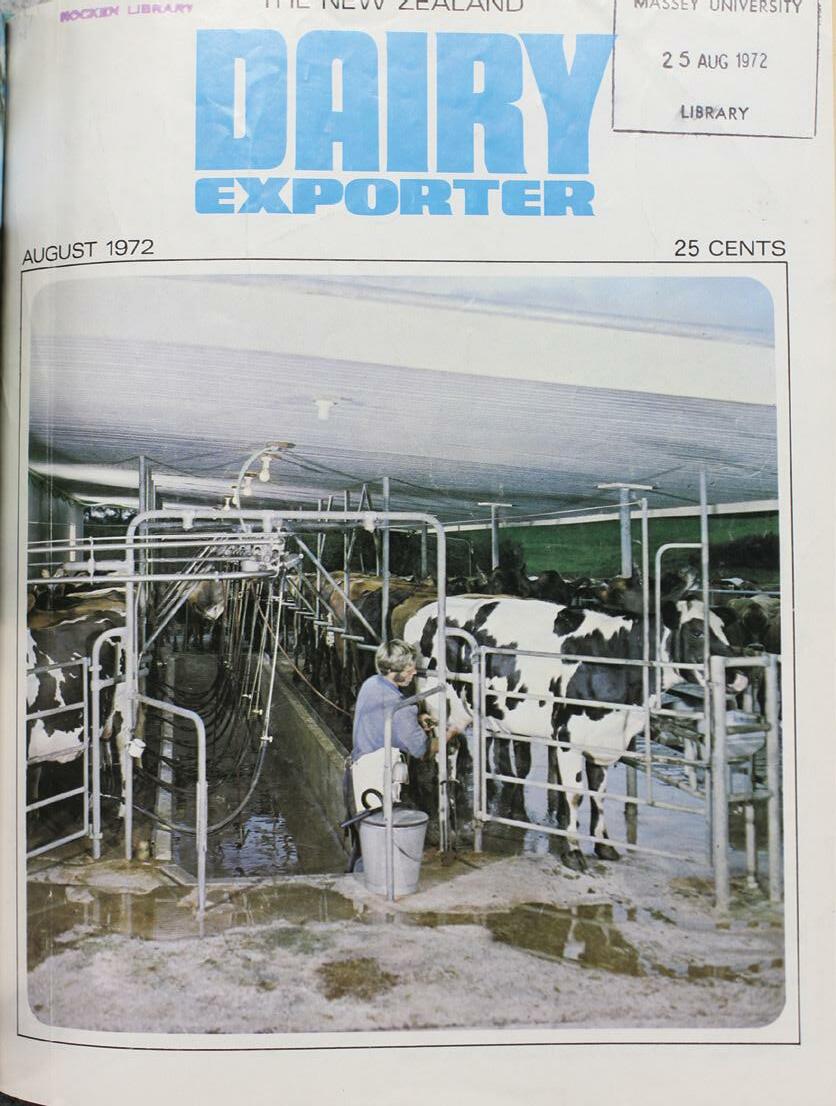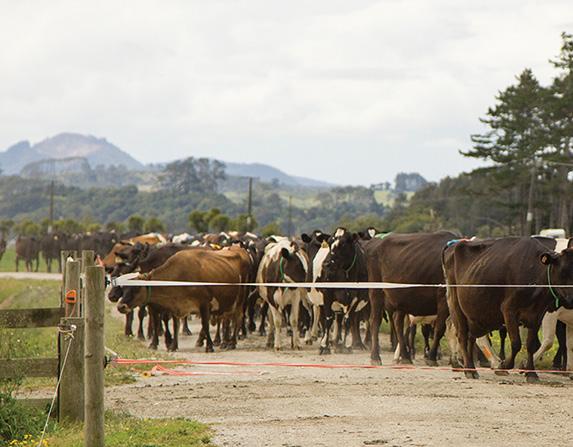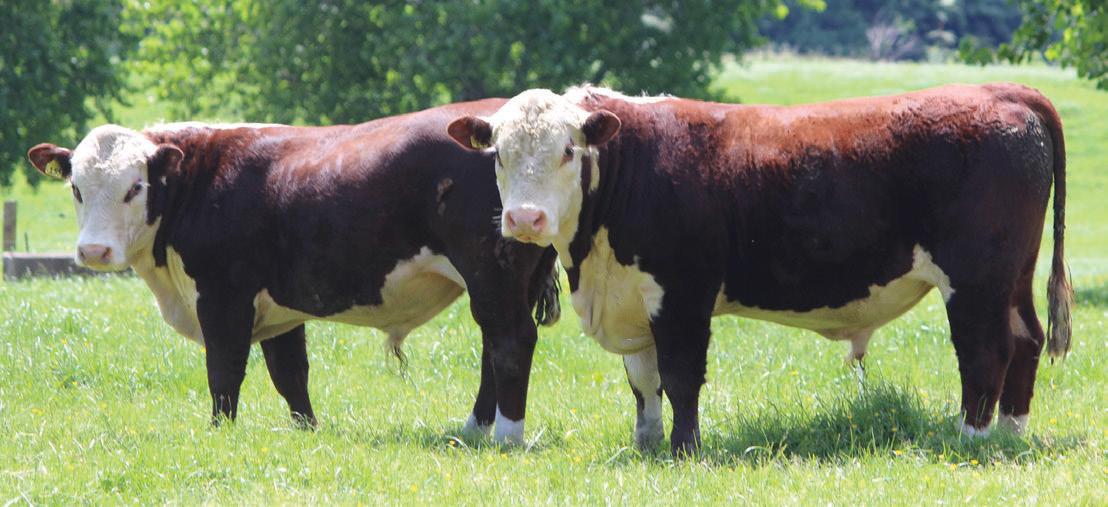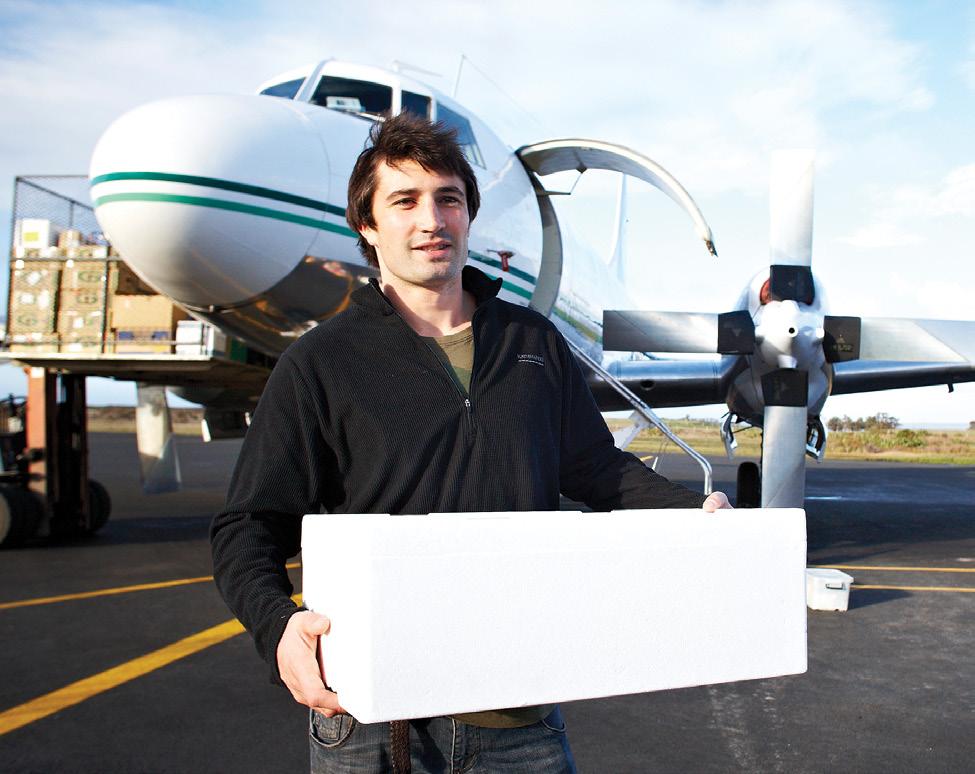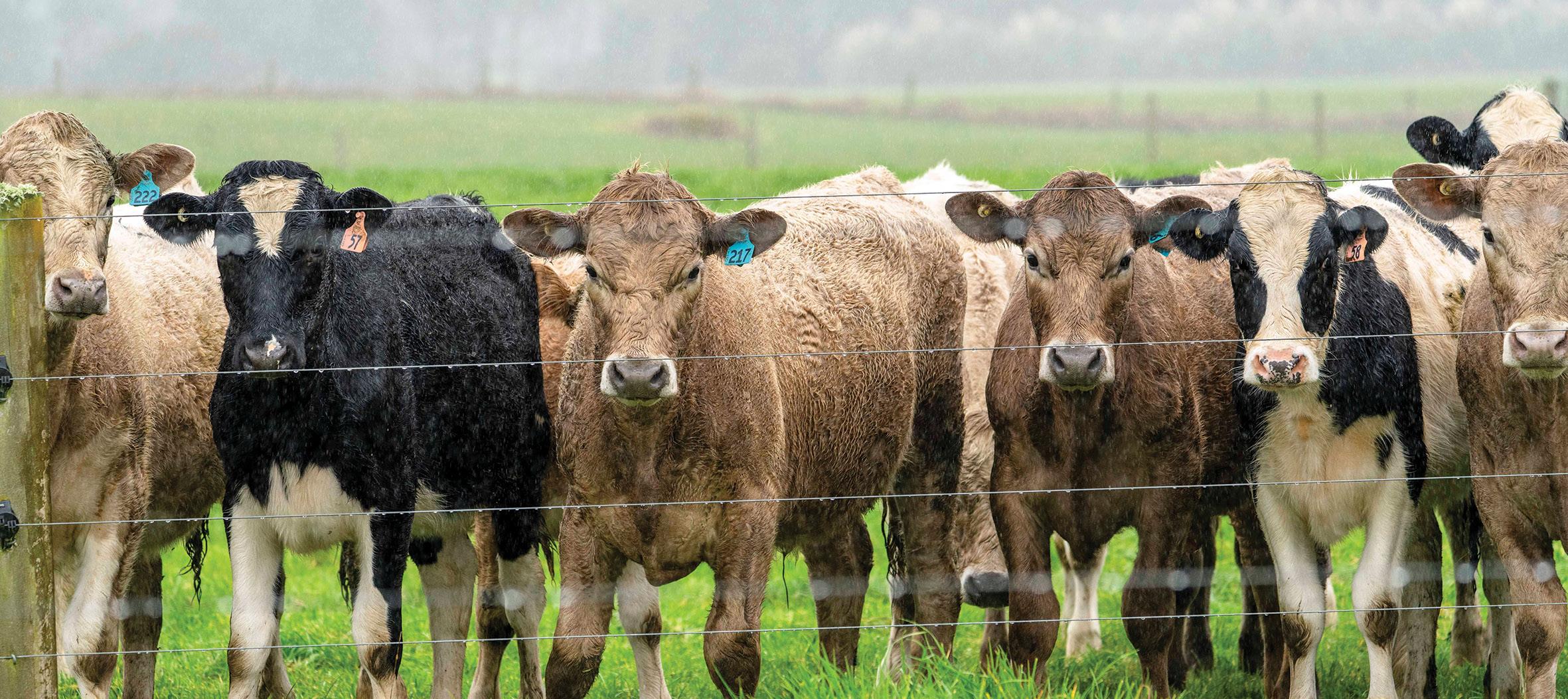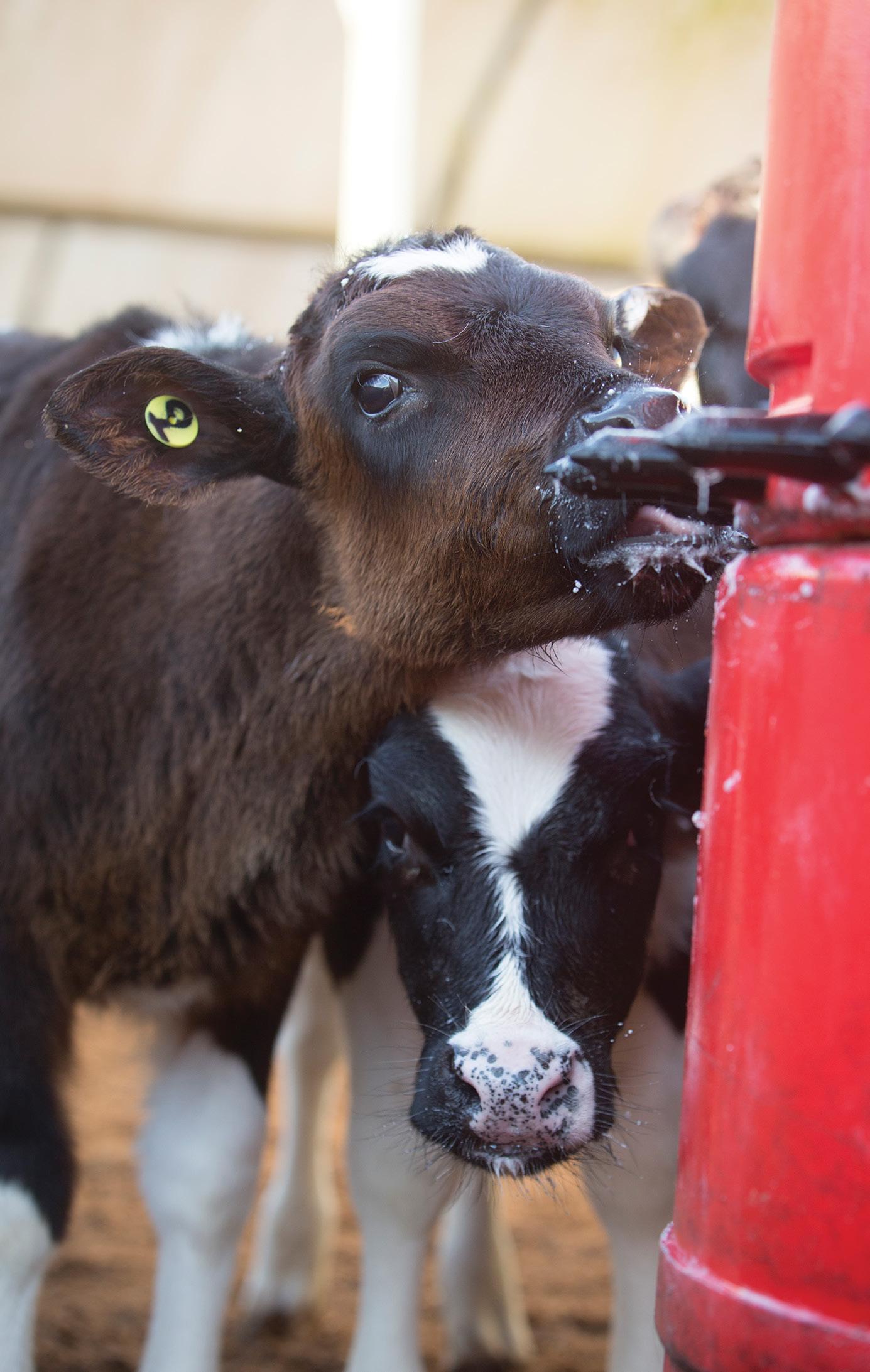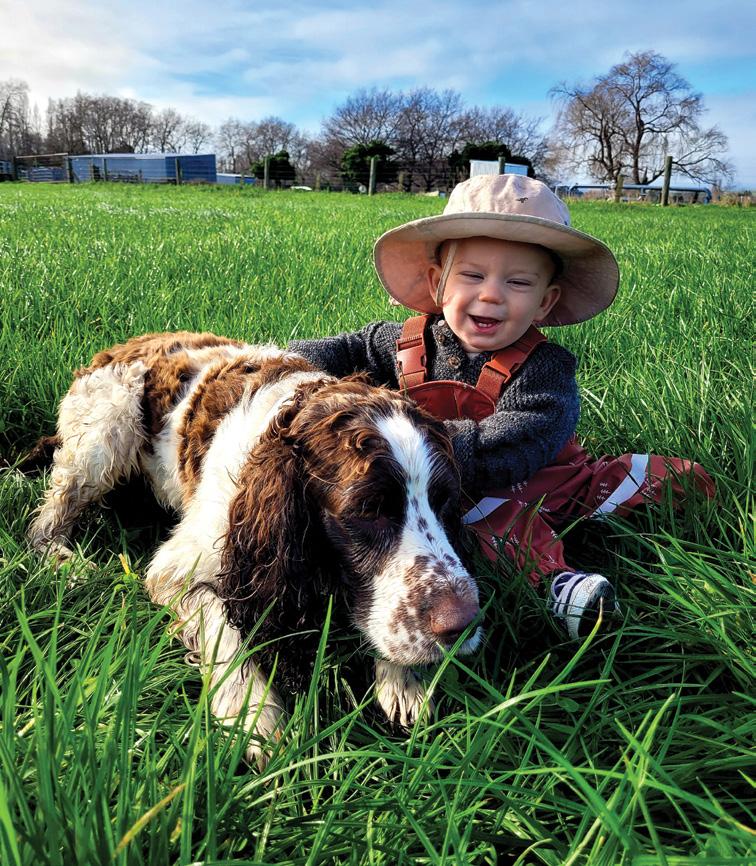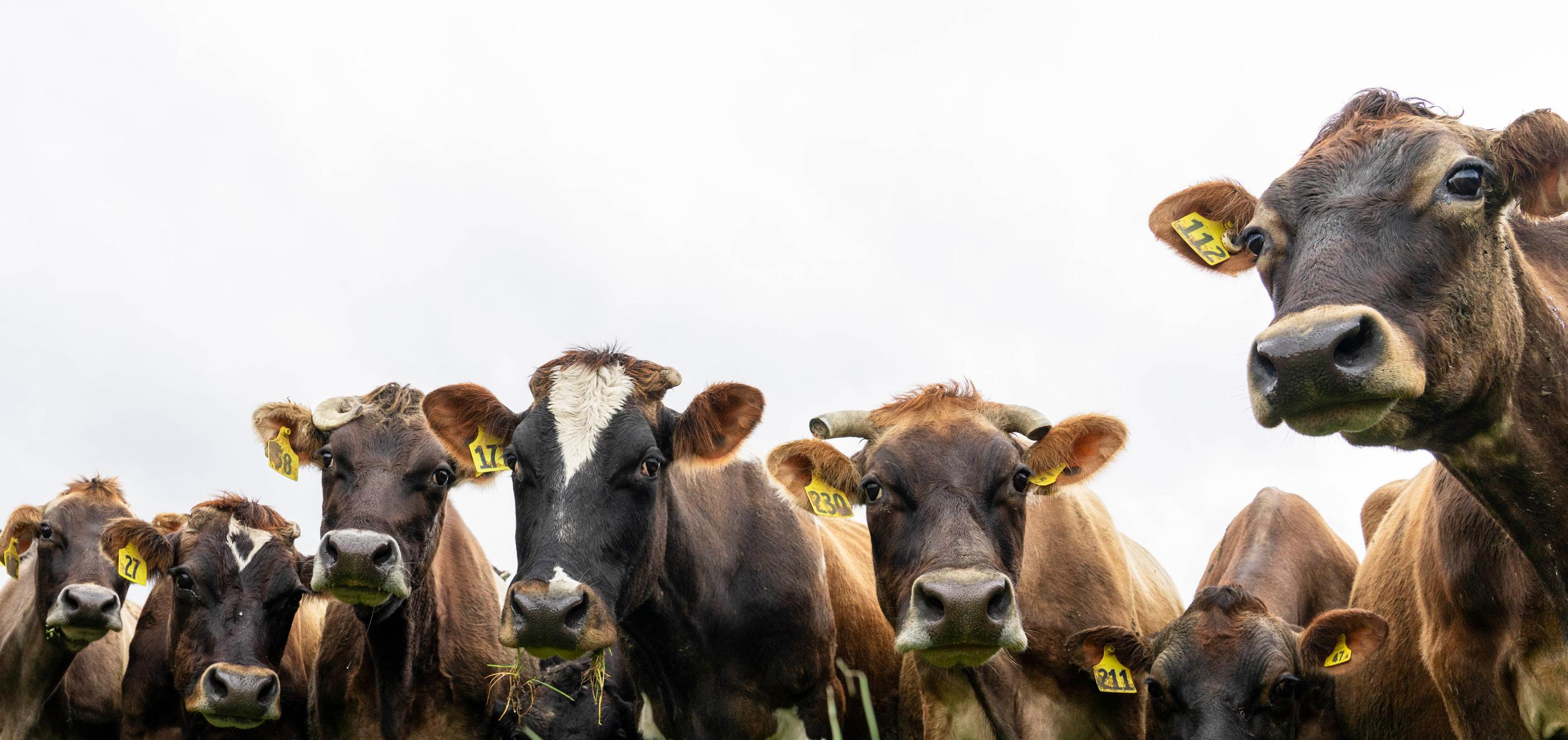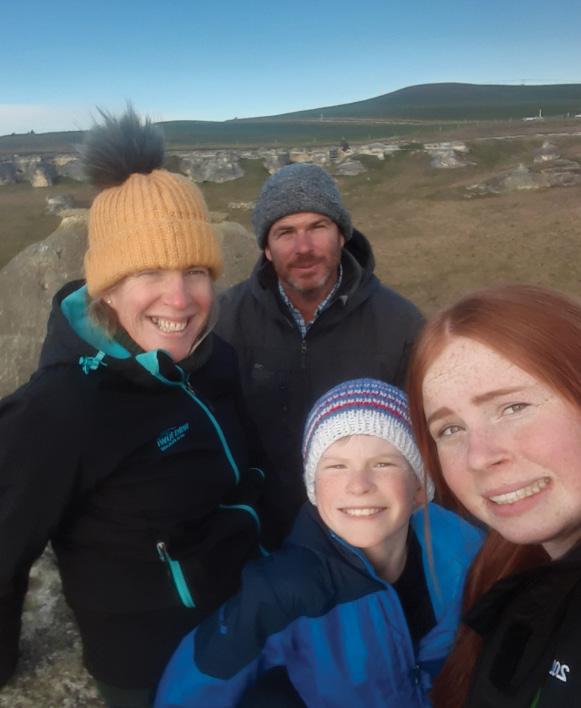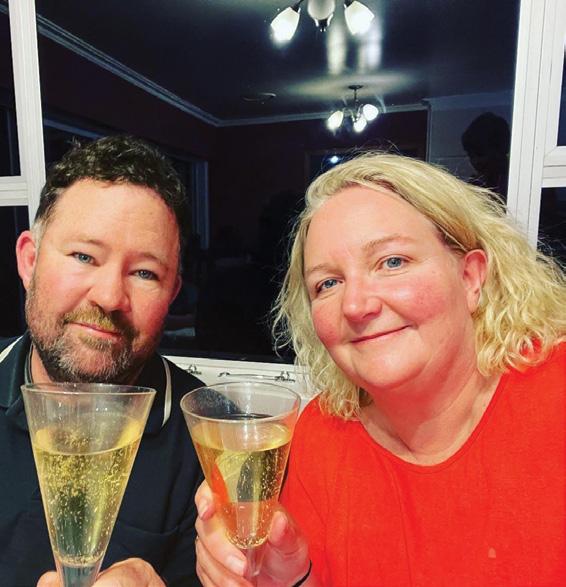BUSINESS DAIRY 2032
WHEN THE WORLD MAKES SENSE Ten years of working in an audited environment is paying off for Canterbury farmers, Anne Lee writes.
T
MC Scotty Stevenson and the panel – from left Charlotte Glass, Scott McDougall and Peter Morgan.
echnology and data will be an integral part of dairying in the next decade with the insights they provide used to design farm systems, to tell our farming stories to consumers and to certify our our quality assurance. That’s the view from a three-person panel at Dairy 2032 – an event hosted in Canterbury recently by agritech company Halter. Veterinarian and animal health researcher Scott McDougall, Canterbury environmental consultant Charlotte Glass and Waikato dairy farmer Peter Morgan joined a panel discussion led by host Scotty Stephenson. Charlotte told the audience of about 100 farmers the sector must move its thinking beyond compliance
alone, shifting towards customised strategies for individual farms that deal with both the current and foreseeable environmental issues. “The nice thing is that when you get 10 years ahead of compliance and you look back, you’re considering emissions and sequestration, changed climate and water quality and then you start to realise the mitigations you should be doing work for all of those things and the world starts to make sense.” Canterbury had a head start on most regions and has been working in an audited environment for almost 10 years. While the goal posts – in terms of rules - aren’t shifting, necessarily, they can be confusing and there are a lot of them, she says. “What we do to cope with that – we try and get it ahead of it by 10 years – build a strategy and then you can choose the bits you want to fight and the bits you don’t want to. “The more you have to provide
Welcome to continuous transparency Think of yourself as a Formula One driver with a crew chief in your ear, explaining what’s going on and a whole team of engineers, probably working remotely, monitoring and evaluating data and the environment you’re working in and the performance of your operation. That’s the analogy Lincoln University Professor Hamish Gow uses to explain farming into the next decade where data and insights from it will inform and certify the business. He says the sector is about to undergo a series of “flips.” “We’re moving from a world that was
28
regulated and compliance-based to a world that’s certified and going to be driven by the conscious consumer. “We’re moving from a world that’s ‘tick the boxes,’ to one which has continuous transparency driven by digital passports.” Farmers will go from jack of all trades to running high-performance teams, moving from tacit knowledge to having codified, digitised and artificial intelligence (AI) enabled data so all the players in the high-performance team can engage.
“Telling the story isn’t enough anymore it has to be validated.” Conscious, high-value consumers in Europe were already demanding products with digital passports for items such as textiles and electric cars and it was just a matter of time before that included food. “We are at the point of systems change. “We don’t know exactly what it will look like but we know it’s coming. “The government has already put its flag in the sand with its Fit for a Better World strategy.” It’s not something to fear though. New
Dairy Exporter | www.nzfarmlife.co.nz | August 2022

